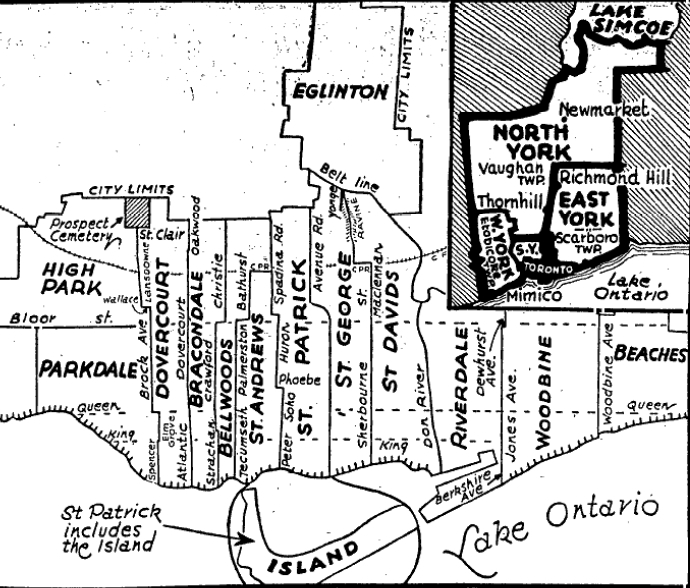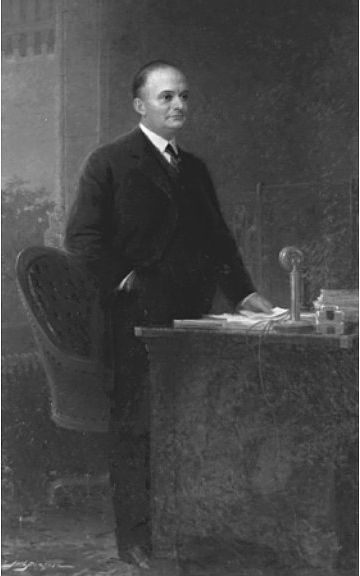|
Soldier (party)
During and following the First World War, several people ran in Canadian elections as soldiers. They had themselves listed on the ballot as Soldier Party, "Soldier-Farmer Party", "Soldier-Labour Party", or “Independent Soldier”. One such candidate, Joseph McNamara, was elected in the riding of Riverdale (in Toronto) in the 1919 Ontario election. His mandate lasted from October 20, 1919 to May 10, 1923 and he generally supported the United Farmers of Ontario-Independent Labour Party government of Ernest C. Drury in the legislature. Politics in the interwar period were hugely influenced by the societal impacts of veterans, in Canada as in other countries that were participants from the start in that war. See also * Veterans Coalition Party of Canada The Veterans Coalition Party of Canada is a Canadian political party established on August 8, 2019. In the 2019 Canadian federal election">ibrary of Parliament - Profile - Veterans Coalition Party of Canada"> In the 2019 Canadi ... [...More Info...] [...Related Items...] OR: [Wikipedia] [Google] [Baidu] |
First World War
World War I (28 July 1914 11 November 1918), often abbreviated as WWI, was one of the deadliest global conflicts in history. Belligerents included much of Europe, the Russian Empire, the United States, and the Ottoman Empire, with fighting occurring throughout Europe, the Middle East, Africa, the Pacific, and parts of Asia. An estimated 9 million soldiers were killed in combat, plus another 23 million wounded, while 5 million civilians died as a result of military action, hunger, and disease. Millions more died in genocides within the Ottoman Empire and in the 1918 influenza pandemic, which was exacerbated by the movement of combatants during the war. Prior to 1914, the European great powers were divided between the Triple Entente (comprising France, Russia, and Britain) and the Triple Alliance (containing Germany, Austria-Hungary, and Italy). Tensions in the Balkans came to a head on 28 June 1914, following the assassination of Archduke Franz Ferdina ... [...More Info...] [...Related Items...] OR: [Wikipedia] [Google] [Baidu] |
Joseph McNamara (Ontario Politician)
Joseph McNamara (June 18, 1888 – July 14, 1957) was an Ontario political figure. He represented Riverdale in the Legislative Assembly of Ontario from 1919 to 1923 as the only member of the Soldier Party and supported the United Farmers of Ontario- Independent Labour Party government of E.C. Drury that took office following the election. However, McNamara remained independent and, in 1921, made an alliance with M.M. MacBride, a dissenting member of the Independent Labour Party who had left the governing caucus, to move a Bill which would have introduced an eight-hour day. This was seen as an attempt to embarrass the rest of the ILP who opposed the measure in deference to the farmer base of the United Farmers who saw it as a threat to their ability to afford farm workers.''Patterns of the Past: Interpreting Ontario's History'' By Roger Hall, William Westfall, Laurel Sefton MacDowell, Dundurn Press Ltd., 1988 McNamara did not run for re-election in 1923. A quarter-century ... [...More Info...] [...Related Items...] OR: [Wikipedia] [Google] [Baidu] |
Riverdale (provincial Electoral District)
Riverdale was a provincial riding in Ontario, Canada that existed from 1914 to 1999. It occupied an area east of the Don River from the city limits just north of Danforth Avenue south to Lake Ontario. It was named after the neighbourhood of Riverdale. In 1999 a major reduction in Ontario seats resulted in Riverdale being merged with part of East York into a larger riding called Broadview-Greenwood. The 1964 by-election in this riding is well known for being among the first elections in Canadian history where a party (the NDP) used door to door canvassing and a get out the vote effort. Boundaries In 1914 the riding was created out of the Toronto East riding. Its initial borders were Logan Avenue from Ashbridges Bay to the city limits just north of the Danforth. The northern boundary followed the city limits with East York east to Woodbine Avenue. The eastern boundary followed this road south to the lake. In 1926 five ridings were added to Toronto. Three new ridings were created ... [...More Info...] [...Related Items...] OR: [Wikipedia] [Google] [Baidu] |
1919 Ontario General Election
The 1919 Ontario general election, held on October 20, 1919, elected 111 Members of the 15th Legislative Assembly of Ontario ("MLAs"). The United Farmers of Ontario captured the most seats but only a minority of the legislature. They joined with 11 Labour MPPs and three others to form a coalition government, ending the 14-year rule of Ontario's Progressive Conservative Party of Ontario, Conservatives. This is one of the few examples of coalition government in Canadian history. Premier William Howard Hearst had aimed to win a fifth consecutive term for the Conservatives, but instead the party became the first in Ontario history to fall from first to third place. As newspaperman John Stephen Willison, John Willison later remarked, "There could not have been a worse time for a general election." Campaign The parties tended to have a targeted approach in fielding their candidates: It was the first in which women could vote and run for office. Election day was also held on the same d ... [...More Info...] [...Related Items...] OR: [Wikipedia] [Google] [Baidu] |
United Farmers Of Ontario
The United Farmers of Ontario (UFO) was an agrarian and populist provincial political party in Ontario, Canada. It was the Ontario provincial branch of the United Farmers movement of the early part of the 20th century. History Foundation and rise (1914–1919) The UFO was founded in 1914 by the union of various farmers' organizations that had been created over the previous fifteen years.Macpherson, Ian"United Farmers of Ontario" ''The Canadian Encyclopedia'' James J. Morrison was the leading figure in the party, serving as its general secretary and secretary of the United Farmers Co-operative Company Ltd. (the purchasing co-operative the UFO operated on behalf of its members). The organization grew rapidly and by 1917 it had 350 local clubs and 12,000 members. The UFO had a comprehensive farmer's platform that called for the nationalization of railways, progressive taxation, and legislation that would facilitate the operation of co-operatives. In 1917, supporters of the UFO fo ... [...More Info...] [...Related Items...] OR: [Wikipedia] [Google] [Baidu] |
Labour Party (Canada)
There have been various groups in Canada that have nominated candidates under the label Labour Party or Independent Labour Party, or other variations from the 1870s until the 1960s. These were usually local or provincial groups using the Labour Party or Independent Labour Party name, backed by local labour councils made up of many union locals in a particular city, or individual trade unions. There was an attempt to create a national Canadian Labour Party in the late 1910s and in the 1920s, but these were only partly successful. The Communist Party of Canada (CPC), formed in 1921, fulfilled some of labour's political yearnings from coast to coast, and then the Co-operative Commonwealth Federation (CCF) – Worker Farmer Socialist was formed in 1932. With organic ties to the organized labour movement, this was a labour party by definition. Prior to the CCFs formation in 1932, the Socialist Party of Canada was strong in British Columbia and in Alberta before World War I, while the ... [...More Info...] [...Related Items...] OR: [Wikipedia] [Google] [Baidu] |
Ernest C
Ernest is a given name derived from Germanic word ''ernst'', meaning "serious". Notable people and fictional characters with the name include: People *Archduke Ernest of Austria (1553–1595), son of Maximilian II, Holy Roman Emperor * Ernest, Margrave of Austria (1027–1075) *Ernest, Duke of Bavaria (1373–1438) *Ernest, Duke of Opava (c. 1415–1464) *Ernest, Margrave of Baden-Durlach (1482–1553) *Ernest, Landgrave of Hesse-Rheinfels (1623–1693) *Ernest Augustus, Elector of Brunswick-Lüneburg (1629–1698) *Ernest, Count of Stolberg-Ilsenburg (1650–1710) *Ernest Augustus, King of Hanover (1771–1851), son of King George III of Great Britain *Ernest II, Duke of Saxe-Coburg and Gotha (1818–1893), sovereign duke of the Duchy of Saxe-Coburg and Gotha *Ernest Augustus, Crown Prince of Hanover (1845–1923) *Ernest, Landgrave of Hesse-Philippsthal (1846–1925) *Ernest Augustus, Prince of Hanover (1914–1987) *Prince Ernst August of Hanover (born 1954) * Prince Ernst A ... [...More Info...] [...Related Items...] OR: [Wikipedia] [Google] [Baidu] |
Interwar
In the history of the 20th century, the interwar period lasted from 11 November 1918 to 1 September 1939 (20 years, 9 months, 21 days), the end of the First World War to the beginning of the Second World War. The interwar period was relatively short, yet featured many significant social, political, and economic changes throughout the world. Petroleum-based energy production and associated mechanisation led to the prosperous Roaring Twenties, a time of both social mobility and economic mobility for the middle class. Automobiles, electric lighting, radio, and more became common among populations in the developed world. The indulgences of the era subsequently were followed by the Great Depression, an unprecedented worldwide economic downturn that severely damaged many of the world's largest economies. Politically, the era coincided with the rise of communism, starting in Russia with the October Revolution and Russian Civil War, at the end of World War I, and ended with the rise ... [...More Info...] [...Related Items...] OR: [Wikipedia] [Google] [Baidu] |
World War I
World War I (28 July 1914 11 November 1918), often abbreviated as WWI, was one of the deadliest global conflicts in history. Belligerents included much of Europe, the Russian Empire, the United States, and the Ottoman Empire, with fighting occurring throughout Europe, the Middle East, Africa, the Pacific, and parts of Asia. An estimated 9 million soldiers were killed in combat, plus another 23 million wounded, while 5 million civilians died as a result of military action, hunger, and disease. Millions more died in genocides within the Ottoman Empire and in the 1918 influenza pandemic, which was exacerbated by the movement of combatants during the war. Prior to 1914, the European great powers were divided between the Triple Entente (comprising France, Russia, and Britain) and the Triple Alliance (containing Germany, Austria-Hungary, and Italy). Tensions in the Balkans came to a head on 28 June 1914, following the assassination of Archduke Franz Ferdin ... [...More Info...] [...Related Items...] OR: [Wikipedia] [Google] [Baidu] |
Veterans Coalition Party Of Canada
The Veterans Coalition Party of Canada is a Canadian political party established on August 8, 2019.ibrary of Parliament - Profile - Veterans Coalition Party of Canada"> In the 2019 Canadian federal election, 25 candidates of the party stood for election in eight provinces, garnering 6,300 votes. In the 2021 Canadian federal election, seven Veterans Coalition Party of Canada candidates stood for election, including four in the Alberta Electoral district (Canada), ridings of Battle River—Crowfoot, Edmonton—Wetaskiwin, Fort McMurray—Cold Lake and Yellowhead. Several candidates, including leader Randy Joy, are retired servicemen. The party's motto is "Truth, Duty, Honour" and its platform includes decentralisation of power. Electoral results See also * Soldier (party), party label used by candidates in Canadian elections during and after the First World War References {{Canada-party-stub 2019 establishments in Alberta Single-issue political parties in Canada ... [...More Info...] [...Related Items...] OR: [Wikipedia] [Google] [Baidu] |
Canadian Soldiers
} The Canadian Armed Forces (CAF; french: Forces armées canadiennes, ''FAC'') are the unified military forces of Canada, including sea, land, and air elements referred to as the Royal Canadian Navy, Canadian Army, and Royal Canadian Air Force. Personnel may belong to either the Regular Force or the Reserve Force, which has four sub-components: the Primary Reserve, Supplementary Reserve, Cadet Organizations Administration and Training Service, and the Canadian Rangers. Under the '' National Defence Act'', the Canadian Armed Forces are an entity separate and distinct from the Department of National Defence (the federal government department responsible for administration and formation of defence policy), which also exists as the civilian support system for the Forces. The Canadian Armed Forces are a professional volunteer force that consists of approximately 68,000 active personnel and 27,000 reserve personnel, increasing to 71,500 and 30,000 respectively under "Strong, Secure ... [...More Info...] [...Related Items...] OR: [Wikipedia] [Google] [Baidu] |




